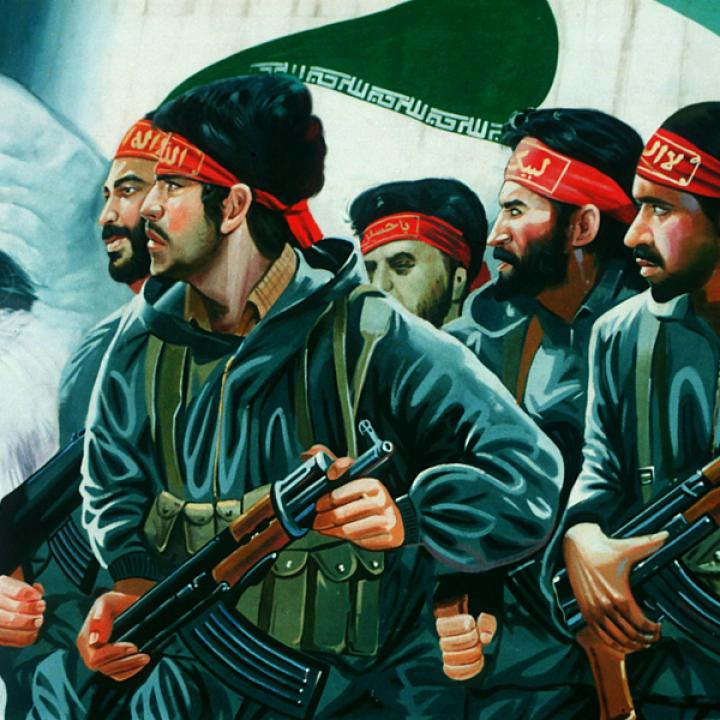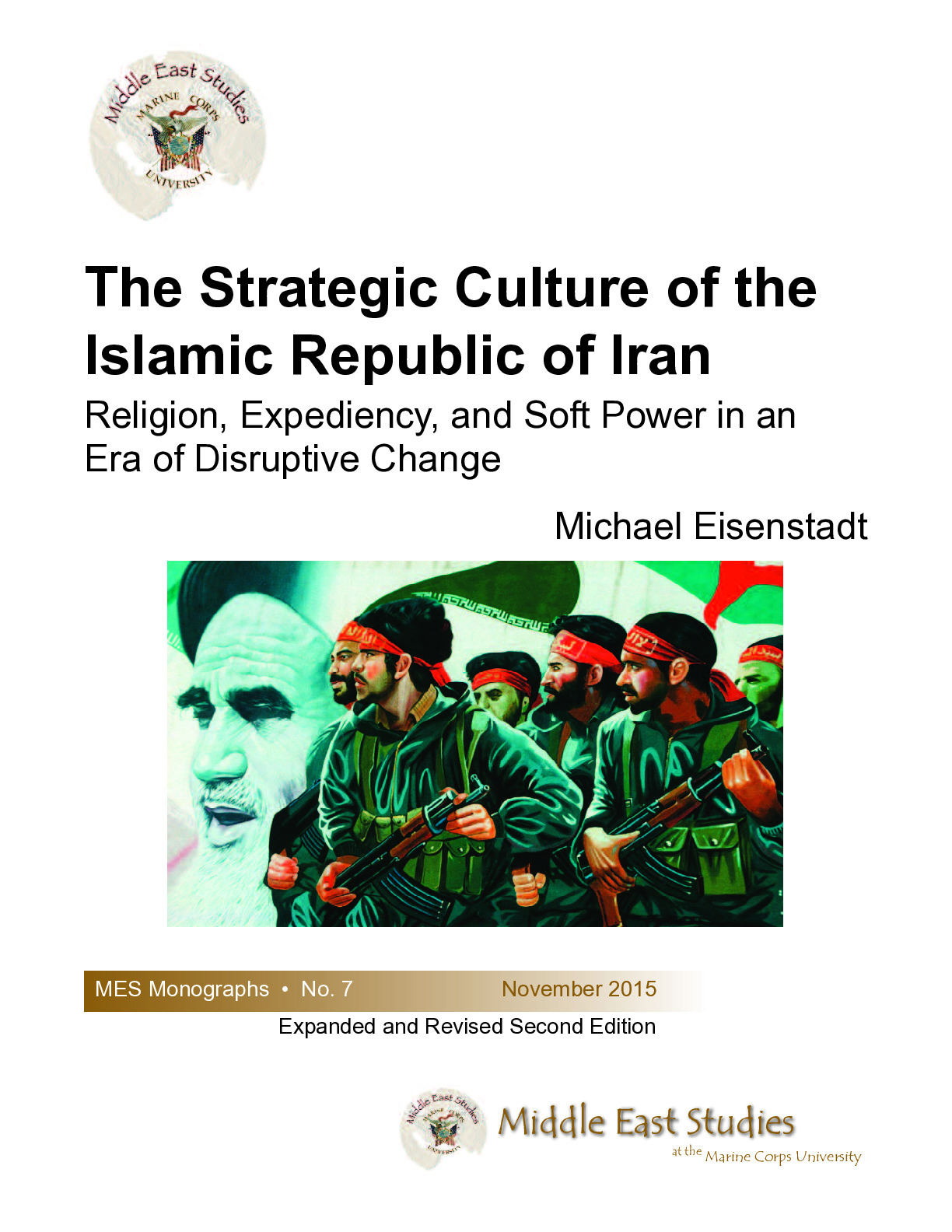
- Policy Analysis
- Monographs
The Strategic Culture of the Islamic Republic of Iran: Religion, Expediency, and Soft Power in an Era of Disruptive Change

In Marine Corps University's expanded and revised 2015 edition of The Strategic Culture of the Islamic Republic of Iran, first published in 2011, author Michael Eisenstadt discusses Iran’s unique approach to statecraft, strategy, and the use of force, focusing on the following core elements:
- Policy in the theocratic Islamic Republic of Iran (IRI) is, paradoxically, based on the secular concept of raison d’etat, rather than on religious or ideological imperatives—though this largely pragmatic approach coexists uneasily with the regime’s rigid doctrine of “resistance.”
- Iran generally seeks to avoid or deter conventional conflict, while advancing its anti-status-quo agenda via proxy and information (i.e., psychological warfare) operations, combining soft and hard power to advance its national security objectives.
- The IRI has traditionally taken a holistic approach to the employment of soft and hard power, prioritizing the former over the latter. This may be changing, however, as a result of its recent military interventions in Syria and Iraq.
- To deal with the array of threats it faces, the IRI has created a deterrent and warfighting triad consisting of proxy/unconventional warfare forces, a guerilla navy, and robust rocket and missile forces.
- The IRI’s “way of war” emphasizes indirection, ambiguity, and strategic patience; the moral, spiritual, and psychological dimensions of statecraft and strategy; reciprocity, proportionality, and the calibrated use of violence; tactical flexibility; and the creation of wedges in hostile coalitions.
The study concludes that Iran is likely to eventually continue its pursuit of nuclear weapons, whether or not the recently concluded nuclear deal remains in force. And while the IRI’s leadership has shown that it is “rational” and generally risk averse, it is also occasionally prone to reckless behavior and overreaching—tendencies that its far-reaching ambitions tend to amplify. This could greatly complicate efforts to create a stable deterrent balance with a nuclear Iran.
For more on the series, or to request print copies, visit the MES website or contact Adam C. Seitz, MES senior research associate.
MES Monographs 7




